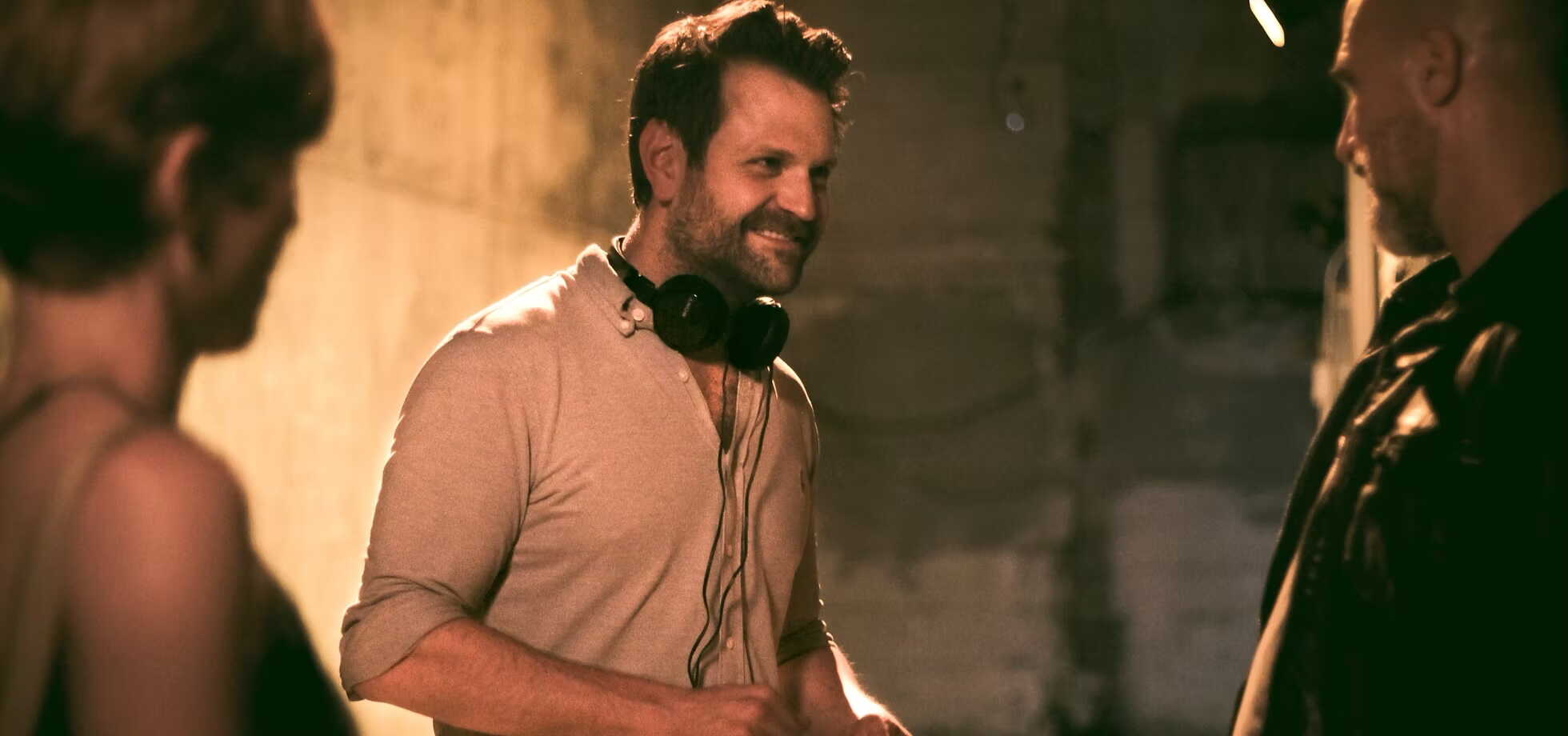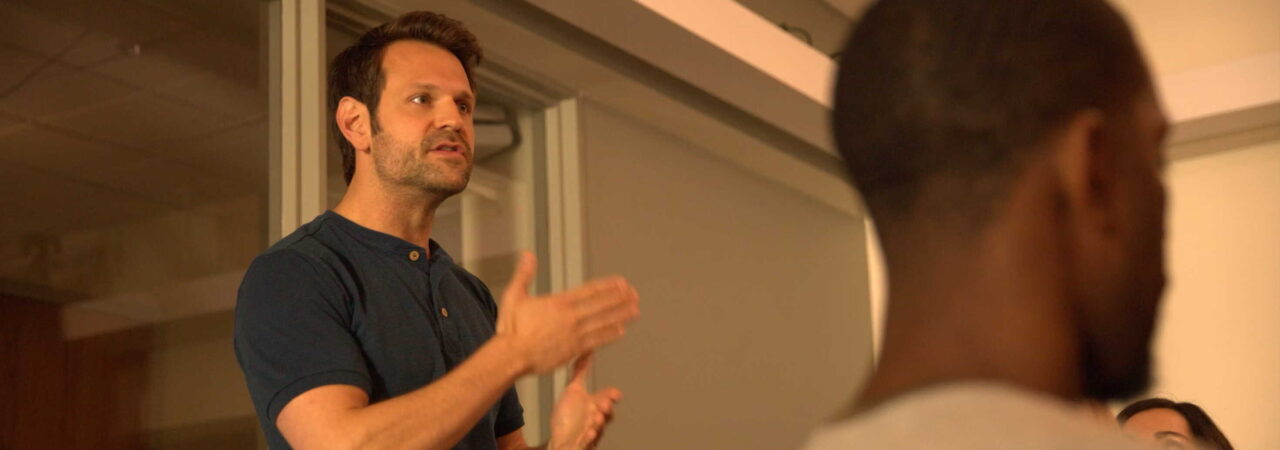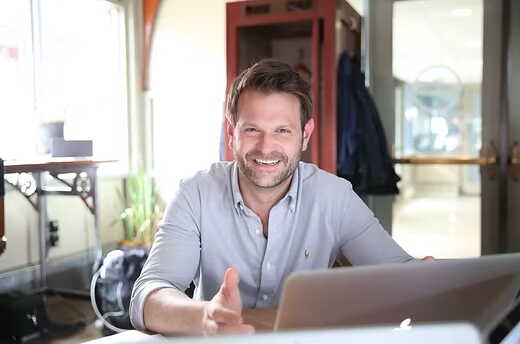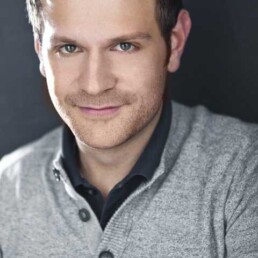What happens when a teddy bear costume becomes the starting point for a profound exploration of adulthood, childhood, and self-discovery? In this exclusive interview, filmmaker Alex Kaplan opens up about the creative journey behind Safe, a short film that started with a playful idea but quickly evolved into something much more profound. Alex reveals how the film’s narrative and tone took shape through his collaboration with co-writer and actor Caleb and his quest to reconnect with a lost sense of play. It’s a thought-provoking look at how something as simple as a teddy bear can uncover raw vulnerability and the complexities of being human.
Beyond Safe, Alex also shares his vision for Of Substance, the distribution company he founded to turn short films into tools for mental health healing. Through this initiative, films like Safe are helping to foster conversations around mental health, trauma, and self-acceptance in therapeutic settings. This interview delves into how Alex’s unique approach to filmmaking and distribution is making a real-world impact, and how he hopes to continue shaping the future of short film as a catalyst for social change.
Cinemacy: Great to meet you, Alex! I hear Safe started with a teddy bear costume. How did that idea become a film exploring adulthood, childhood, and self-discovery?
Alex Kaplan: Hey Ryan! Thanks for having me. And HA! Oh boy, that teddy bear costume…
Caleb and I had already been talking about exploring the sheer weight and overwhelm of just being a person today. We both struggle with ADHD, so we instantly bonded over how chaotically our minds work and knew we wanted to capture that—but in a way that felt playful and unexpected.
At the same time, my wife had recently challenged me to reconnect with my childlike sense of play, something I’d totally lost touch with. Safe to say, I’ve been taking life way too seriously these days.
So when Michael, during a creative meeting, slyly mentioned, “I do have a teddy bear costume,” something just clicked. The contrast of a grown man, worn down by life, confiding in his childhood teddy bear was so simple, honest, and correct. I pitched it to the guys, and they immediately said, “Yep. That’s it. Let’s do it!”
Cinemacy: You mentioned the concept for Safe came together quickly with Caleb, your co-writer and lead actor. How did your collaboration shape the film’s tone and direction?
Alex Kaplan: Caleb is unlike anyone I’ve ever met. He calls everyone “Human”—as in, “What’s up, human?”—which is just so perfectly him. Actually, even though you never hear or see his name, Caleb insisted that his character be named Hugh—for human. I love that!
He’s deeply compassionate, naturally vulnerable, and embodies the idea that we’re all in this together.
So the juxtaposition of his childlike warmth against his long hair and grizzly beard made this film an absolute breeze—it was obvious what we needed to do. His ability to talk so freely about things we all struggle with but rarely admit out loud shaped the film’s entire tone. He doesn’t just act vulnerable—he is vulnerable, and that makes everything feel effortless.
We never had to force anything; we just let it be what it wanted to be—and that’s what made the collaboration so fluid, easy, and fun.

Cinemacy: How did you decide on the visual style and tone for Safe? What choices did you make to evoke nostalgia and the magic of childhood?
Alex Kaplan: We only had a teddy bear at first, but on set, the film became much bigger than I’d imagined. I initially saw it as a simple, grounded moment—Caleb beside his teddy bear, revealing that he’d imagined it as larger than life. Then Michael said, “Let’s shoot through the peephole.” Suddenly, the bear wasn’t just imagined—it had a home of its own.
That took the film from a metaphor to a magical little world. Then Sarah sealed the nostalgia, suggesting 4:3 framing to mirror the peephole, making it feel like a frozen childhood memory. Her color work gave it that soft, faded, dreamlike feel.
None of these choices were planned to evoke nostalgia—we just trusted the story, and it naturally found its way there.
Cinemacy: What did you learn about yourself while making Safe, both as a filmmaker and personally, given its deeply personal themes?
Alex Kaplan: To tell the truth, I don’t think of myself as a great filmmaker—that’s not my focus. My focus is impact. I love taking half-baked ideas that might help others and collaborating with talented people to bring them to life.
That said, I learned I can make my film style in 60 seconds. But I’d rather not. (laughs) One minute is so short—you barely get into something before it’s over. We pulled it off, but I prefer letting stories breathe a little more.
Personally, Safe reminded me I still have it in me. I hadn’t directed my own piece since before COVID-19, and honestly, I wasn’t sure if I could do it without my longtime creative partner, Brian. But this film showed me I bring something real to the table, no matter who I work with.
I mean, it helps that the people I worked with were wildly talented and supportive. (laughs)
Cinemacy: The core message of Safe is about rediscovering childhood magic and unconditional love. How do you hope viewers will respond to this, and what do you want them to take away?
Alex Kaplan: I hope Safe triggers a memory—that one special thing from childhood.
Maybe it’s a teddy bear, a blanket, a hiding spot, or a person who made them feel safe. Whatever it is, I want this film to spark that thought and make them pause.
More than that, I hope it permits people to reconnect with that part of themselves. Life gets heavy, but we all have moments from our past that remind us of who we were before the world got too loud. If Safe helps someone tap back into that—even for a second—then we did something right.
Cinemacy: With Slamdance’s 6XTY category’s one-minute limit, how did you distill your message so quickly? What challenges did you face in the short timeframe, from writing to filming in just an hour?
Alex Kaplan: Constraints can be liberating. When you only have an hour to shoot, you can’t overthink—you just have to trust the process and commit to the moment.
And we didn’t ask, How do we shrink this story to 60 seconds? We asked, What kind of story fits within 60 seconds? It had to be one focused emotion, monologue, and surprising reveal—anything more would’ve been too much.
Still, Caleb practiced that monologue like his life depended on it, delivering it at lightning speed while making every moment count. And a huge shoutout to our editor, Umar Malik, who worked magic to cut lines and restructure it without losing a single ounce of impact. Even I couldn’t tell what was missing after his cuts!

Cinemacy: Safe will premiere at the 2025 Slamdance Film Festival. What does this milestone mean to you, and what are you most excited about for the premiere?
Alex Kaplan: This is the first film I’ve written and directed that I’ve ever submitted to a festival.
I’ve made over a dozen films for Of Substance that are actively used in treatment, but I never played the festival game. It takes time, money, and effort, and since I wasn’t trying to break into the industry, it never felt like the right move.
But I also knew visibility and recognition matter. Having a film at Slamdance is a massive milestone—for me, for Of Substance, and for our work. It validates that we can tell powerful, gripping stories WHILE using them as tools for healing in treatment.
We’re simply over the moon about it.
Cinemacy: As the founder of Of Substance, a distribution company turning short films into tools for transformation, how has your approach to distribution evolved, and how do you see short films like Safe driving social change?
Alex Kaplan: There’s just so much noise out there—so much content, so many platforms, all fighting for attention. We realized early on that we didn’t want to compete in that space. Instead, we created our lane—turning short films into utilitarian tools used by mental health professionals in therapy, treatment centers, prisons, schools, and beyond.
And now, Of Substance is an award-winning organization providing short films—comedies to thrillers touching on mental health, addiction, trauma, and shame—to mental health professionals to enhance therapy, spark introspection, and accelerate healing.
Instead of chasing festival runs or streaming deals, our films go where they can make a direct impact. And that’s where Safe belongs, too—in places where it can help people process emotions, open up, and heal.
Cinemacy: What role do you envision Of Substance playing in the future of short film distribution and sparking conversations or action in society?
Alex Kaplan: We’re working to get our platform into the hands of treatment professionals worldwide, normalizing the value of Cinema Therapy—using movies as a tool for healing and growth, eventually getting insurance to cover them as an Evidence-Based Practice, which has never been done.
And–Big news for short filmmakers–We’re starting to invite other short films to join our platform!
There are incredible short films out there with nowhere to go, so we built a place for them!! We want Of Substance to be the home for impactful short films—where they don’t just sit in a digital graveyard but actively help people in therapy, education, and beyond.
So if you have or know of a film that would be a great fit, PLEASE reach out through our website—ofsubstance.org.
But beyond that, we want to bring this approach into the mainstream—especially in a time of such intense cultural division. Films can bring people together, help us hear one another, and develop empathy for those we see as different from ourselves.
There’s so much untapped potential in using film as a tool for transformation, and we’re committed to leading that charge.

Cinemacy: What advice would you give fellow filmmakers looking to make short films or work under tight deadlines and constraints?
Alex Kaplan: We launched Of Substance by making eight films in eight months—because we knew that if we got stuck trying to make each one perfect, we’d never get anything done.
You’ll never get it right—but that’s not the point. The point is to make it, learn, and make the next one better.
So trust yourself. Be bold. And just make the damn thing.
For more about Alex Kaplan, ‘Safe’ and Of Substance, visit https://www.alexkaplanfilms.com/ and https://www.ofsubstance.org/


Milyon88demo is perfect for trying things out before diving in. Get a feel for the games and see what you like. Great way to test the waters! Start your demo now at milyon88demo.